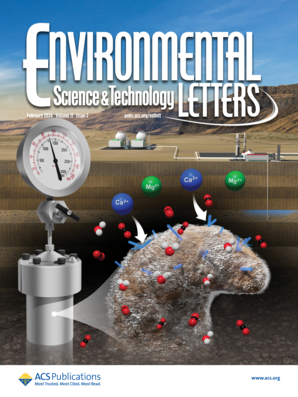Diabetes and obesity: leveraging heterogeneity for precision medicine
IF 8.9
2区 环境科学与生态学
Q1 ENGINEERING, ENVIRONMENTAL
Environmental Science & Technology Letters Environ.
Pub Date : 2024-11-11
DOI:10.1093/eurheartj/ehae746
引用次数: 0
Abstract
The increasing prevalence of diabetes, obesity, and their cardiometabolic sequelae present major global health challenges and highlight shortfalls of current approaches to the prevention and treatment of these conditions. Representing the largest global burden of morbidity and mortality, the pathobiological processes underlying cardiometabolic diseases are in principle preventable and, even when disease is manifest, sometimes reversable. Nevertheless, with current clinical and public health strategies, goals of widespread prevention and remission remain largely aspirational. Application of precision medicine approaches that reduce errors and improve accuracy in medical and health recommendations has potential to accelerate progress towards these goals. Precision medicine must also maintain safety and ideally be cost-effective, as well as being compatible with an individual’s preferences, capabilities, and needs. Initial progress in precision medicine was made in the context of rare diseases, with much focus on pharmacogenetic studies, owing to the cause of these diseases often being attributable to highly penetrant single gene mutations. By contrast, most obesity and type 2 diabetes are heterogeneous in aetiology and clinical presentation, underpinned by complex interactions between genetic and non-genetic factors. The heterogeneity of these conditions can be leveraged for development of approaches for precision therapies. Adequate characterization of the heterogeneity in cardiometabolic disease necessitates diversity of and synthesis across data types and research methods, ideally culminating in precision trials and real-world application of precision medicine approaches. This State-of-the-Art Review provides an overview of the current state of the science of precision medicine, as well as outlining a roadmap for study designs that maximise opportunities and address challenges to clinical implementation of precision medicine approaches in obesity and diabetes.糖尿病和肥胖症:利用异质性实现精准医疗
糖尿病、肥胖症及其心脏代谢后遗症的发病率不断上升,给全球健康带来了重大挑战,也凸显了目前预防和治疗这些疾病的方法的不足。作为全球最大的发病率和死亡率负担,心脏代谢疾病的病理生物学过程原则上是可以预防的,即使疾病已经显现,有时也是可以逆转的。然而,就目前的临床和公共卫生策略而言,广泛预防和缓解疾病的目标在很大程度上仍是奢望。应用精准医疗方法,减少医疗和健康建议中的误差并提高准确性,有可能加快实现这些目标的进程。精准医疗还必须保持安全性,最好具有成本效益,并符合个人的偏好、能力和需求。精准医疗最初是在罕见病方面取得进展的,主要集中在药物遗传学研究上,因为这些疾病的病因往往是高渗透性的单基因突变。相比之下,大多数肥胖症和 2 型糖尿病在病因和临床表现上具有异质性,其基础是遗传和非遗传因素之间复杂的相互作用。可以利用这些疾病的异质性来开发精准治疗的方法。要充分描述心脏代谢疾病的异质性,就必须实现数据类型和研究方法的多样化和综合化,最终实现精准试验和精准医学方法在现实世界中的应用。这篇《最新进展综述》概述了精准医学的科学现状,并概述了研究设计的路线图,以最大限度地利用肥胖症和糖尿病精准医学方法在临床实施中的机遇并应对挑战。
本文章由计算机程序翻译,如有差异,请以英文原文为准。
求助全文
约1分钟内获得全文
求助全文
来源期刊

Environmental Science & Technology Letters Environ.
ENGINEERING, ENVIRONMENTALENVIRONMENTAL SC-ENVIRONMENTAL SCIENCES
CiteScore
17.90
自引率
3.70%
发文量
163
期刊介绍:
Environmental Science & Technology Letters serves as an international forum for brief communications on experimental or theoretical results of exceptional timeliness in all aspects of environmental science, both pure and applied. Published as soon as accepted, these communications are summarized in monthly issues. Additionally, the journal features short reviews on emerging topics in environmental science and technology.
 求助内容:
求助内容: 应助结果提醒方式:
应助结果提醒方式:


